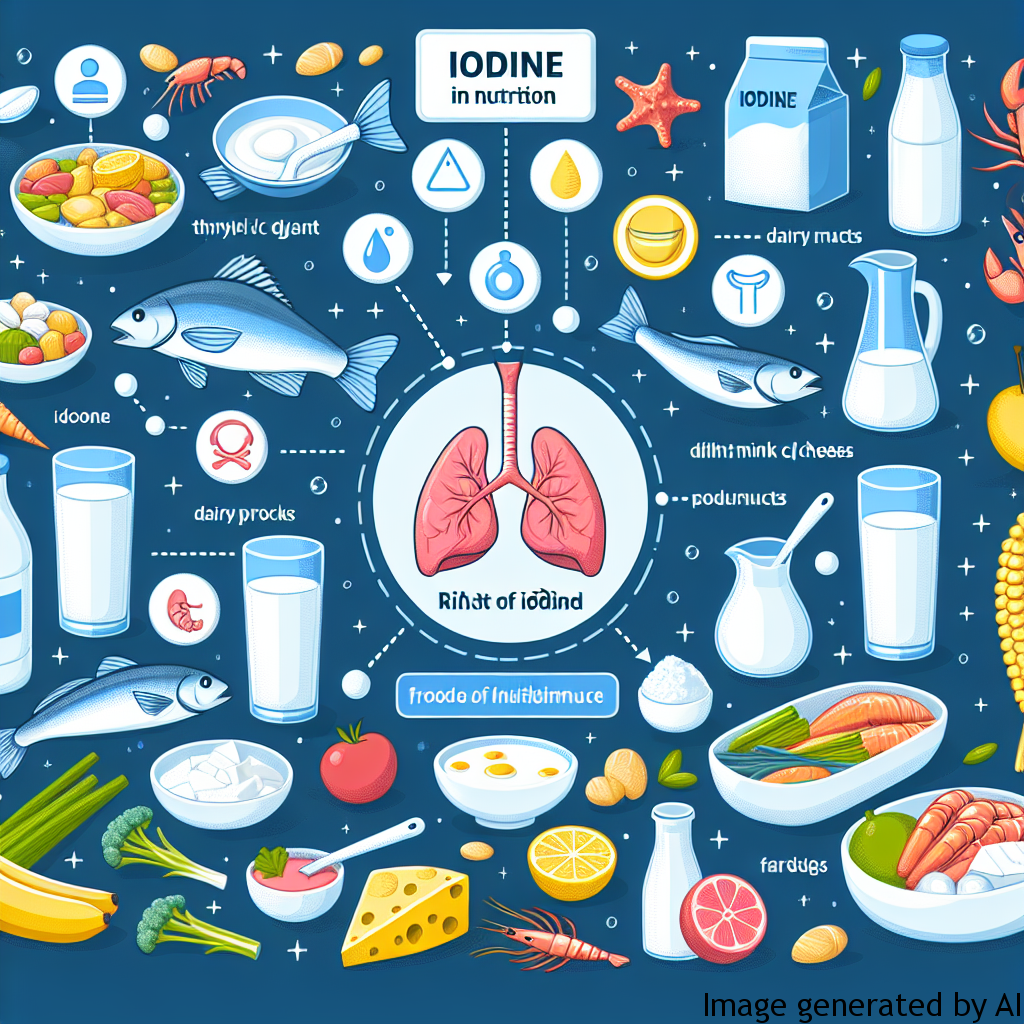Introduction
Iodine is a crucial nutrient that the human body needs. It plays a significant role in the production of thyroid hormones, which are important for regulating metabolic and body processes. Although it’s a vital element for our health, the body cannot produce iodine, making it an essential part of our diet. This article discusses the role of iodine in nutrition and its sources.
The Role of Iodine in Nutrition
In the world of nutrition, iodine takes a prominent place. It’s primarily utilized in the production of thyroid hormones, namely thyroxine (T4) and triiodothyronine (T3). These hormones play critical roles in various body functions, including growth, brain development, bone maintenance, and metabolism.
Iodine Deficiency
Insufficient intake of iodine can lead to several health problems collectively known as iodine deficiency disorders (IDD). These disorders encompass numerous growth and developmental issues such as goitre, cognitive impairment, and in severe cases, cretinism in children. Furthermore, iodine deficiency can lead to hypothyroidism in adults, resulting in fatigue, weight gain, and depression.
Sources of Iodine
A variety of foods provide iodine. Seafood is a rich source of this nutrient, with fish, seaweed, and shellfish containing high amounts. Dairy products and grain products are also good sources of iodine, largely due to iodine in animal feed and iodized agricultural practices. Lastly, iodized salt has been a major strategy in many countries to combat iodine deficiency.
Iodine Supplements
In regions where iodine-rich food is scarce, or for individuals with certain dietary restrictions, iodine supplements can be a significant source of this key nutrient. However, it’s important to consult a healthcare professional before starting any supplement regimen to prevent potential complications from overdosing.
Conclusion
In conclusion, iodine is a vital nutrient vital for human health and its primary role lies in the production of thyroid hormones and maintaining metabolic balance. It’s present in various foods, predominantly seafood, dairy and grain products, and can also be supplemented if necessary. However, like any nutrient, it’s essential to intake iodine in appropriate amounts to prevent both deficiency and excess. By including iodine-rich foods in our diet, or considering supplements, we can ensure our body has enough of this critical nutrient.

